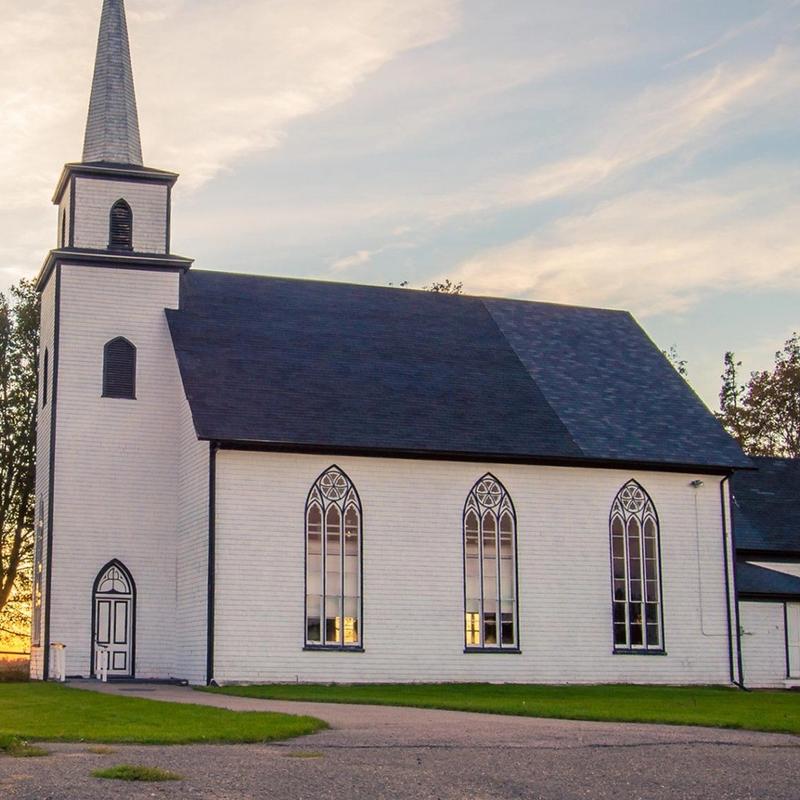"I just don’t know if I fit here," she confided to my wife and me one day. Alas, I had just been voted in as the senior pastor of a small, struggling, mostly older church. At 30 years old, I was the youngest adult in attendance every Sunday by several decades. Part of the reason the church had taken a chance on a non-seminary trained, green-behind-the-ears pastor was to generate some excitement among younger folks who might otherwise pass by the aging congregation.
I wrestled that first few years trying to get younger people to attend. We adjusted our music style. We included more events for young families. My wife and I did our own part by having three more children in the space of four years.
Yet we continued to encounter genuine frustration among young college-age adults who seemed to like the welcoming culture of the church and seemed to like my preaching but couldn’t seem to make friends with people their age. Thankfully, this wonderful young adult stayed at our church, despite being one of few her age, and began by her presence to attract and invite others her age. This also began to happen among young families as one young family saw another young family and slowly people our age began to call this church their home. Change was afoot, and everyone was excited.
Finding a comfortable church home is hard. I did not understand this fully until I had to help guide my own family in finding a church home when we moved to Nashville. I accepted a new role with a denominational agency and was, like most Christians around the world, a simple working layman. Suddenly all of those factors that may or may not attract people to a church became real to me. I understood, on this side of the pew, how hard it was to settle into a church.
I also began to understand the perils of trying to find a worshipping community that exactly fits my specific needs. Perhaps it’s a Western phenomenon, perhaps it’s the embarrassment of ecclesial riches that allows us to pick and choose which body of Jesus-followers we will join, but we Christians have gotten too picky, I think, about the kinds of people with whom we will commit our lives for the mission of God.
The Discomfort of Church
In other words, maybe we need to embrace the discomfort of church. As I read the New Testament letters, one of the themes that resonates over and over again is the call by the Apostles to unity. James rebukes the congregation for their intramural disputes (James 4:1), Paul preaches against racial divides (Galatians 2) and tribal tendencies (1 Corinthians 3:4), Peter urges his audience to embrace “likemindedness” (1 Peter 3:8), and John is at the end of his life beckoning the people of God to live out the ethic of love (1 John 3:11-24).
The Holy Spirit would not have inspired these words from the hands of the Apostles if it was our natural human tendency to live in harmony with people who are vastly different in this fallen world. It takes intentionality. It takes work. It takes a focus on the way the gospel brings together those who should be far apart.
Unity also means that we will go to church with people who might make us uncomfortable, and at times we will make others who worship uncomfortable. We may, at times, not “fit in” with those who share a pew. And this is good.
It’s good because God uses those with differing background, quirks, and ecclesiological preferences to sanctify my soul. The spirit of God uses the Word of God to form us, not in isolation but in community. We grow together, jostling, disagreeing, striving all toward fullness in Christ.
Where we go to a church and see difference, in age, in economic status, in race, the Bible sees a mosaic of beauty. This is why Paul commends diversity in 1 Corinthians 12 and other passages. Each of us contributes to the mission of God by bringing our full package of strengths and weaknesses, talents and deficiencies, likes and dislikes. We submit those to Christ by submitting them to the body.
In one sense, we might actually look for a church were we don’t quite fit in. I’m not talking about a church that strays from biblical orthodoxy or a church with an abusive or sinful culture. But we might look for a congregation where it might take a bit of work to know our brothers and sisters and to be known by them.
For instance, in my small group, I’m always sharpened when the single dad weighs in with comments that I had not seen before because he reads Scripture from his perspective. And I’ve grown as a parent watching the couple whose kids are slightly older as they navigate things we will soon face in our own family. I see the elderly woman care for her husband with dementia and see in her devotion a glimpse of the love I hope to have with Angela at the end of our lives together.
Diversity Is Rich
I’ve read the Bible together with college students. I’ve sung hymns with senior saints. I’ve listened to the stories of cancer survivors, abuse victims, and military veterans. I’ve learned about the everyday lives of blue collar workers, CEOs, and stay-at-home moms.
And I’m richer for it.
In a world that is increasingly dividing us by tribes, it should be the people of God who are most resistant to this kind of sameness. After all, we drink from the same cup and eat from the same bread (1 Corinthians 10:17). All of us kneel before the cross broken and needy, dependent on a vulnerable Savior, rejected by his own. And in Jesus, God is creating a new family with a new identity, a body not of identical bots stripped of our uniqueness, but a mosaic of redeemed image-bearers from every nation, tribe, and tongue.
We fit in not because we find people exactly like us but because we know God and we are known by the God of the Universe.






